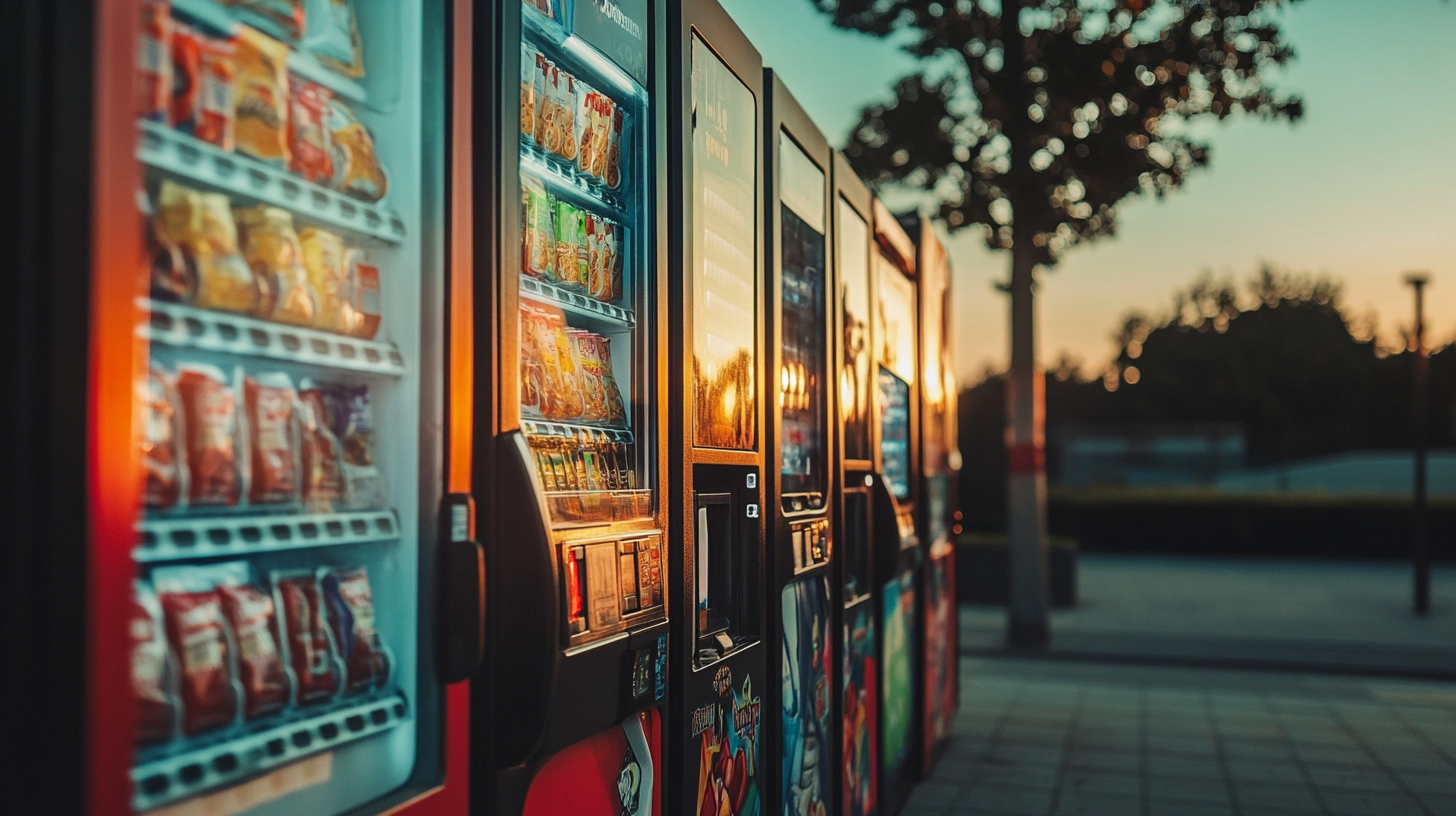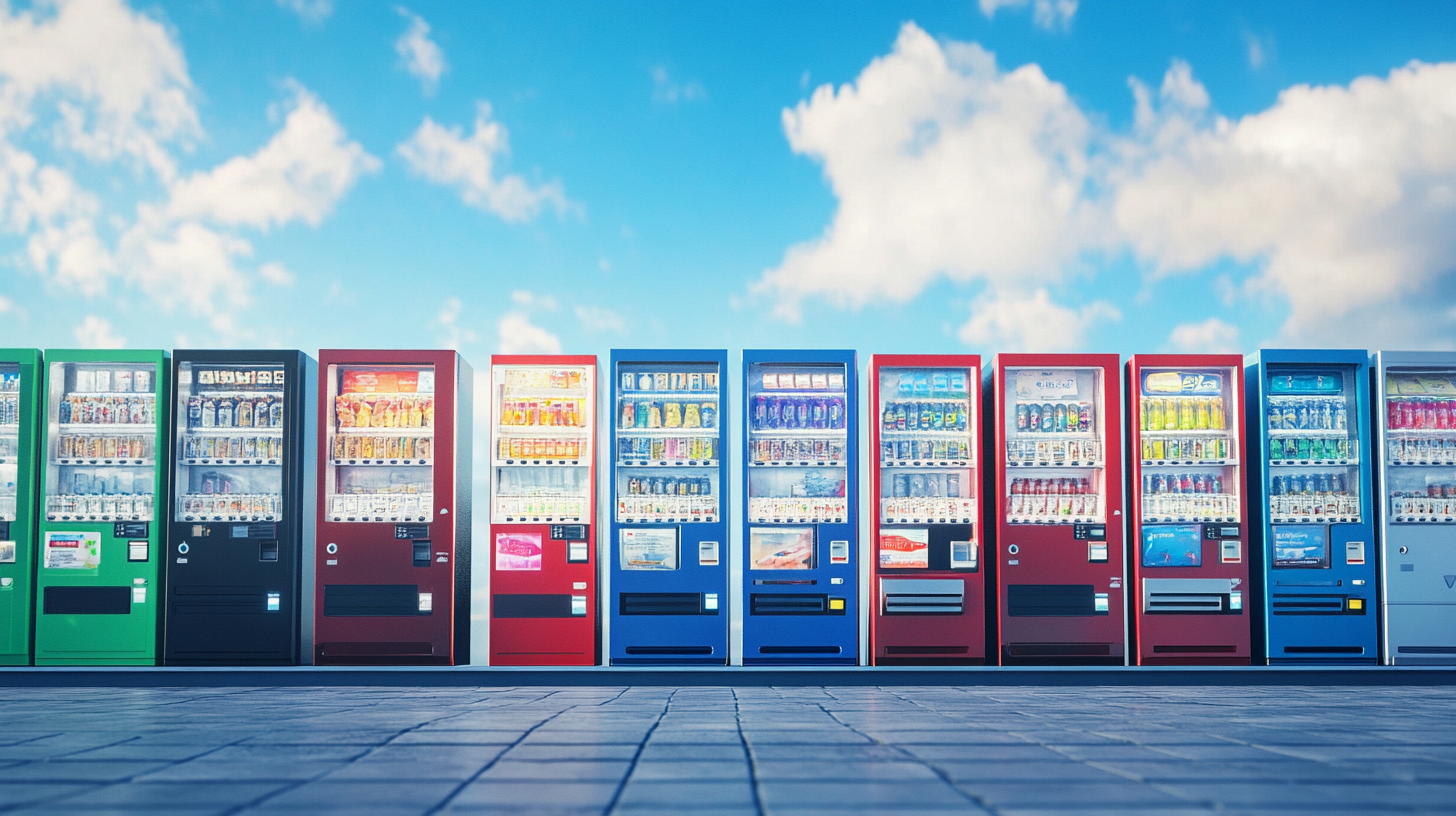Maximizing Cost Efficiency Through Exceptional After Sales Support for Free Vending Machines
In today's fast-paced consumer environment, businesses are continually seeking innovative ways to enhance profitability while minimizing operational costs. Free vending machines have emerged as a compelling solution, offering businesses a unique way to engage customers without the upfront costs typically associated with traditional vending operations. According to a recent report by IBISWorld, the vending machine industry has seen a steady growth rate of approximately 3.5% annually, with an increasing number of companies opting for free vending models to attract clientele and maintain competitive advantage. This model not only draws in foot traffic but also allows businesses to provide value-added services without additional financial burden.
However, simply placing free vending machines does not guarantee success. Exceptional after-sales support is critical in ensuring these machines operate efficiently and meet customer expectations. A study by the National Automatic Merchandising Association (NAMA) highlighted that companies with robust after-sales support can improve customer satisfaction and loyalty by as much as 20%. By investing in superior after-sales services, businesses can maximize the effectiveness of their free vending machines, ultimately translating to enhanced cost efficiency and stronger brand loyalty. This blog will explore strategies to leverage after-sales support to optimize the benefits of free vending machines, ensuring long-term success in a competitive market.

Strategies to Enhance After Sales Support for Free Vending Machines
In the competitive landscape of free vending machines, exceptional after-sales support can significantly enhance cost efficiency and customer satisfaction. One effective strategy is to establish a robust communication channel between vendors and their clients. This can be achieved through dedicated support lines, chatbots, and email queries, ensuring that customers receive prompt assistance for any inquiries or issues that may arise. By prioritizing responsiveness, vending machine operators can foster trust and reduce downtime, which ultimately leads to increased usage and profitability. Another essential strategy is to implement a proactive maintenance schedule. Regularly scheduled check-ups not only ensure machines are functioning optimally but also help in identifying potential issues before they escalate. By equipping staff with training on troubleshooting common problems, businesses can empower their personnel to resolve minor issues swiftly, reducing the need for costly technician visits. This approach not only preserves the machines' lifespan but also enhances the overall user experience, encouraging repeat customers. Moreover, gathering feedback from users can provide valuable insights into the after-sales support experience. By conducting surveys or utilizing customer feedback platforms, vending operators can identify areas for improvement and make informed decisions about service enhancements. This creates a customer-centric business model where users feel valued, leading to stronger loyalty and advocacy for the brand. As the free vending machine market continues to grow, integrating these strategies into after-sales support will be crucial for maximizing cost efficiency and achieving long-term success.

Understanding the Financial Impact of Efficient After Sales Service
In the competitive landscape of vending services, understanding the financial impact of efficient after-sales service is paramount for maximizing cost efficiency, particularly for free vending machines. According to a report by IBISWorld, businesses that provide strong after-sales support can reduce operational costs by up to 20%. This is especially critical in the vending machine sector, where maintenance and service can significantly affect profitability.
Efficient after-sales service not only streamlines the maintenance process but also enhances user satisfaction. A study conducted by Statista revealed that 70% of consumers are likely to repurchase from a brand that offers exceptional customer support. For operators of free vending machines, excellent after-sales service translates into consistent product availability and minimal downtime, ultimately leading to increased usage and revenue generation. Each hour a machine is out of service can cost operators over $100 in lost sales, highlighting the financial implications of effective service strategies.
Moreover, the cost of acquiring new customers far exceeds the expense of retaining existing ones. According to the Harvard Business Review, retaining just 5% more customers can increase profits by 25% to 95%. Implementing a robust after-sales support system not only addresses immediate operational issues but also fosters long-term customer loyalty, ensuring that free vending machine operations remain profitable and sustainable in the rapidly evolving market.

Key Components of Exceptional After Sales Support for Vending Machines
Exceptional after-sales support is crucial in the increasingly competitive vending machine market, particularly as it is projected to grow significantly in the coming years. Key components of this exceptional support include rapid response times, comprehensive maintenance services, and robust customer training programs. By offering prompt assistance and resolving issues swiftly, vending machine operators can ensure minimal downtime, which is essential for maximizing revenue, especially in high-traffic areas.
Another vital aspect of effective after-sales support is the provision of ongoing training and resources for clients. This enables machine operators to fully leverage their equipment's capabilities, enhancing the user experience and increasing customer satisfaction. Additionally, creating an open line of communication for feedback allows businesses to continually improve their support offerings and adapt to changing consumer preferences.
Moreover, leveraging data analytics can enhance after-sales services. By monitoring machine performance and customer engagement, companies can proactively address potential issues before they affect sales. This can lead to enhancements in machine functionality and service offerings, ultimately fostering loyalty and increasing market share as businesses grow in this vibrant sector.

Building Customer Loyalty Through Effective After Sales Communication
Effective after-sales communication is crucial for building customer loyalty, especially in the free vending machine industry. When customers receive prompt and informative responses to their inquiries, it establishes a foundation of trust. They feel valued and understood, which transforms a mere transactional relationship into a long-term partnership. Utilizing multiple channels for communication—such as emails, phone support, and live chat—ensures that customers can reach out in the way that’s most convenient for them.
Moreover, proactive communication plays a significant role in enhancing customer satisfaction. Regular updates about maintenance schedules, machine functionality, and any changes in service can preempt potential issues and demonstrate a commitment to quality support. By reaching out to customers with informative content or helpful tips on maximizing their vending experience, businesses can further engage users, making them feel appreciated and informed. This approach not only resolves issues more efficiently but also creates opportunities for upselling or cross-promotion of additional services.
Ultimately, integrating robust after-sales communication can differentiate a brand in a competitive market. When customers know they can rely on support even after they receive the service, they are more likely to share their positive experiences, recommend the service to others, and become repeat customers. Establishing such loyalty through exceptional communication does not just enhance customer retention; it builds a community of satisfied users who contribute to a thriving business ecosystem.
Measuring Cost Efficiency Improvements Through After Sales Initiatives
In today’s competitive retail landscape, after-sales support has become a critical driver of cost efficiency, especially in sectors like free vending machines. A recent analysis from IBISWorld indicates that improving after-sales initiatives can lead to a significant reduction in operational costs, with businesses experiencing an average saving of up to 25% when effectively managing their support systems. This underscores the importance of harnessing exceptional after-sales service to enhance customer loyalty and reduce churn—factors that translate into more sustainable financial outcomes.
Furthermore, organizations must continually evaluate their after-sales strategies to ensure alignment with evolving consumer expectations. The latest data from Deloitte reveals that 62% of customers are more likely to remain loyal to brands that provide outstanding after-sales support. Integrating technology, as emphasized by JD.com's updated mission to leverage technology for a better life, creates opportunities to streamline processes, speed up response times, and improve customer satisfaction. By investing in after-sales initiatives that prioritize customer engagement, companies can not only enhance their cost efficiency but also build a reputation that attracts new customers.
As businesses seek to navigate the challenges presented by a shifting market, prioritizing after-sales support is no longer just an operational consideration—it’s a strategic imperative. Organizations that can measure and optimize their after-sales performance will find themselves well-positioned to lead the market in terms of both customer satisfaction and cost efficiency, ultimately reinventing their value proposition in the eyes of consumers.
